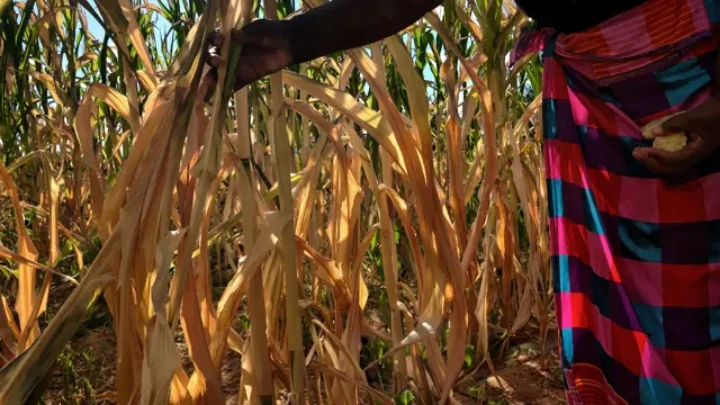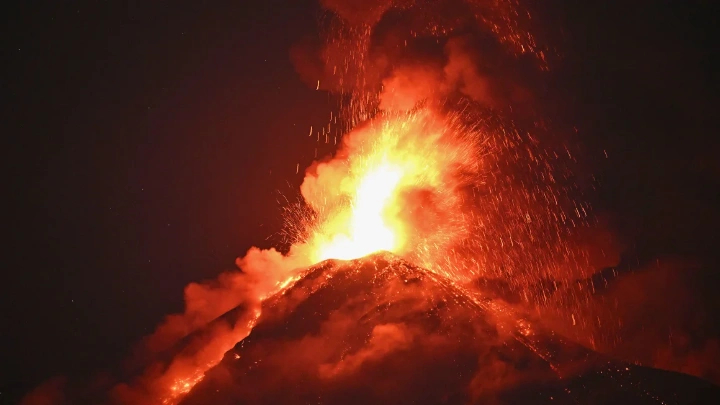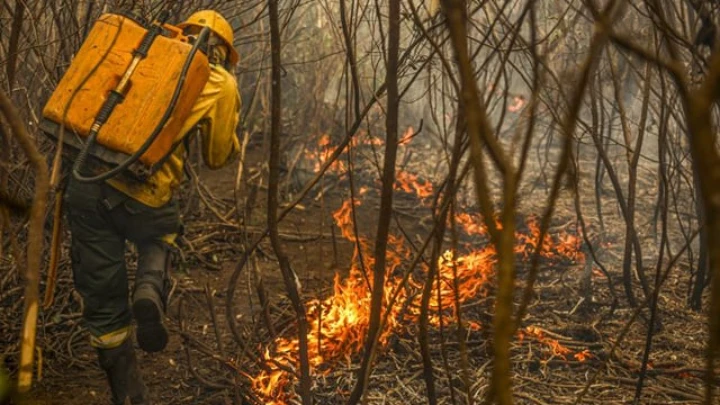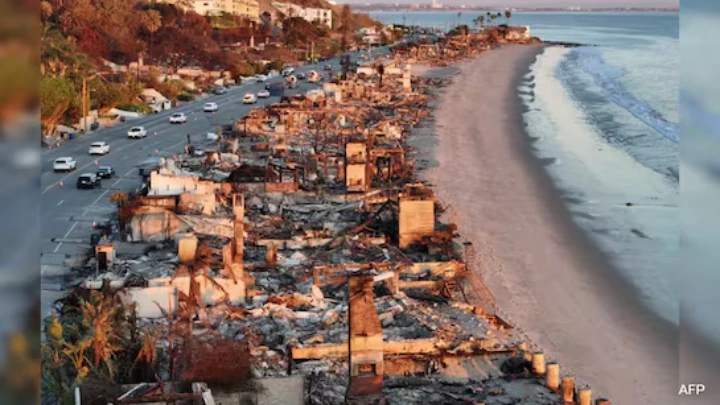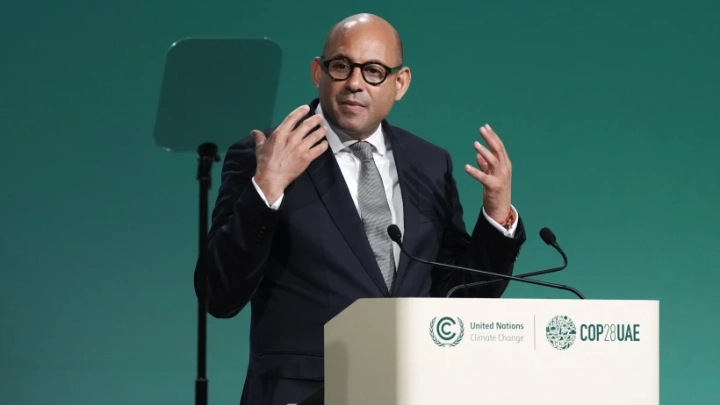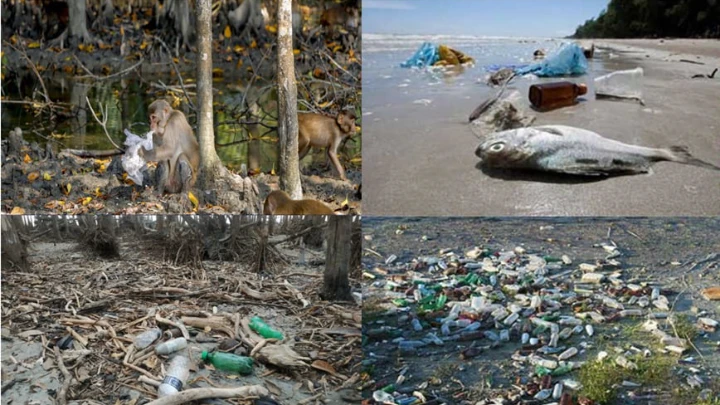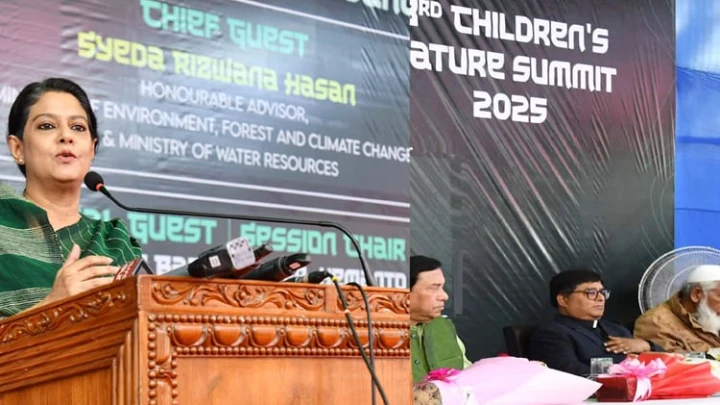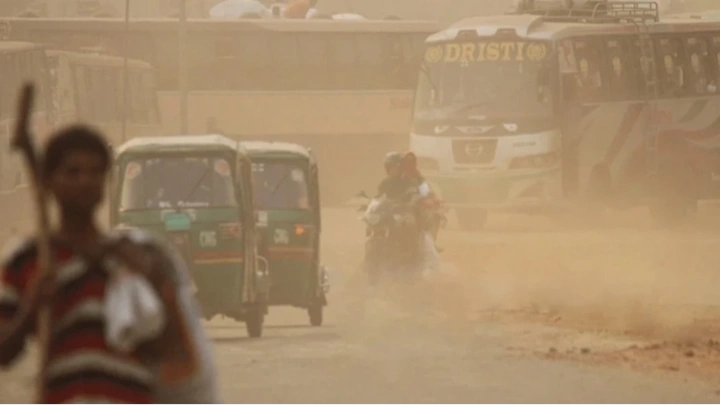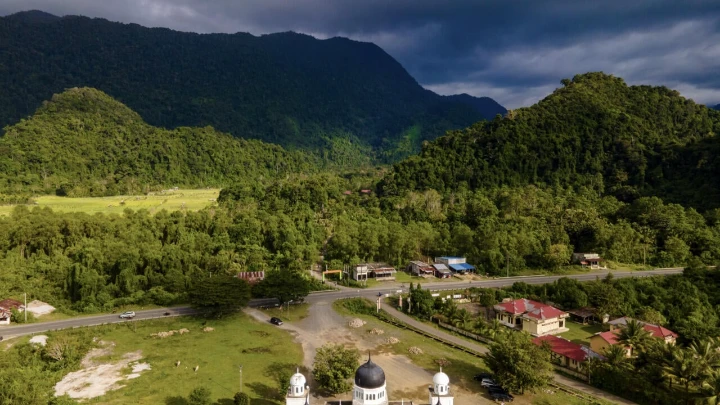Zimbabwean farmers buckle under El Nino drought
AFP || Shining BD
Ladias Konje's maize field in northeastern Zimbabwe is normally green at this time of the year, but it is already parched yellow.
The drought from the El Nino weather pattern has withered leaves, wilted cobs and raised the spectre of hunger for the 38-year-old and millions of others.
"On a good year we would be relying on fresh maize, pumpkins and groundnuts but there is nothing at all in the fields this time," said the small-scale farmer.
More than 13 million people across southern Africa can't put enough food on the table and the number is expected to surge in the coming months as the result of months of poor rains kick in, according to the United Nations.
In Zimbabwe, officials are urging people to tighten their belts as authorities scramble to find alternative food supplies.
"Families must not be wasteful. They must be conservative and prepare only food that is enough for the meal," said Leonard Munamati, who heads the Agricultural and Rural Development Advisory Services, a government agency.
Konje said her children are already going to school on an empty stomach. Her tobacco crop that usually brings in some extra cash has also failed, she said.
President Emmerson Mnangagwa has promised that no Zimbabwean will starve.
But many are worried.
As soon as a ruling party lawmaker stepped out of his car upon arriving in Konje's village of Kanyemba for a visit this month, a group of women heading to fetch water from a borehole dropped their buckets and quickly surrounded him to air their grievances.
"Families are relying on wild fruits," MP Tendai Nyabani later told AFP. Kanyemba's Rushinga district is a stronghold of ZANU-PF, the party in power since independence in 1980.
Some have resorted to making flour for pap or sadza, a traditional dish, with chemically treated maize seeds meant for planting and handed out under a government programme, he added.
- No maize anywhere -
The government has teamed up with charities and UN agencies to bring in aid and opposition politicians have called for ZANU-PF leaning areas not to be favoured -- something authorities have been accused of in the past.
Officials are also looking at increasing food imports.
But this has become harder as El Nino -- which warms the sea surface in the southern Pacific and leads to hotter weather globally -- wreaks havoc across the region.
"Traditionally we have been buying organic maize from Zambia. Now Zambia doesn't have (any) and Malawi also doesn't have (any)," said Tafadzwa Musarara, chair of the Grain Millers Association of Zimbabwe.
Zambia declared drought a national disaster in February.
"We are all now buying GMO maize from South Africa," said Musarara. Imports of GMO (genetically modified) grains were first allowed in 2020 as Zimbabwe faced another drought.
They come with strict conditions: grains can only be milled and planting them can lead to prosecution, according to the agriculture ministry.
Meanwhile prices have skyrocketed.
In Rushinga, a 25-kilo (55-pound) bag of maize is now selling for up to $15.
That is a prohibitive sum in a country where 42 percent of the population lives in extreme poverty, with less than $2.15 a day, according to the UN's World Food Programme (WFP).
The crisis has compounded hyperinflation and other pre-existing economic troubles in a country once seen as the region's breadbasket.
Zimbabwe's agricultural sector has long struggled to recover from the expropriation of land from white large-scale commercial farmers carried out more than two decades ago under President Robert Mugabe.
Aimed at correcting historical wrongs, critics say the move brought agricultural production to its knees, causing a sharp decline in economic output.
Now the government is pushing farmers to plant more sorghum, which has proven more resilient to the dry weather, as well as Austral winter crops including wheat and Irish potato.
With climate change expected to make drought and other extreme weather events more frequent, it also plans to build water reservoirs to serve Rushinga and neighbouring regions.
Construction work for two dams started in 2018 and is proceeding slowly after a lull imposed by the coronavirus pandemic.
"If these two dams are completed, I think we are going to have a long-lasting solution... in terms of food and water supply," said Nyabani, the lawmaker.
Shining BD

